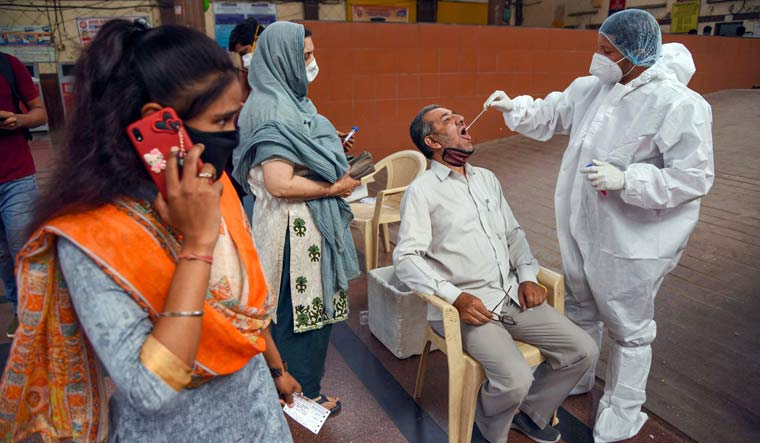The result of the third sero survey which was conducted in Mumbai at the time of the start of vaccination drive in January, was released on Saturday by the Brihanmumbai Municipal Corporation (BMC) stating that 36.3 per cent of 10,197 Mumbaikars had antibodies.
This means that more than a third of the city’s total citizens have antibodies to the COVID-causing Sars-CoV-2 virus and that most of the patients during the second COVID-19 wave in the city hail from non-slum areas. Now, given that we know how the levels of antibodies are falling in the slums and non-slum areas, the BMC is ramping up its vaccination drive to ensure as many citizens as possible get the jab.
This sero survey differs significantly from the earlier two surveys that were carried out in 2020, the first year of the pandemic.
Positivity
The first two sero surveys had found 57 per cent and 45 per cent positivity in Mumbai's slum areas. As against that, the present third sero survey, which is a representation from both, slum and non-slum pockets in each of the 24 civic wards in the city, found 41.6 per cent positivity in slum areas, while 28.5 per cent for non-slum areas.
Antibody levels
This survey shows that there is a fall in the levels of antibodies in the slums. Only 28.5 per cent people in high rises have shown anti-bodies which is clearly not adequate and leaves many with a vulnerability towards the virus. The percentage of the slum population with antibodies has consistently declined over the last three sero surveys. In comparison, in the non-slum areas the antibody levels have been found to be rising since the first survey conducted in July 2020 when it was 16 per cent and in the second survey when it was found to be 18 per cent.
Gender ratio
In the latest third sero survey report, women are seen to be having slightly more antibodies than men. (Women – 37.1 per cent, men – 35 per cent). This picture is almost similar to the last two surveys, when women did have more antibodies than men, even if marginally.
The methodology
For the current third Sero survey, BMC looked at samples submitted at civic dispensaries as well as private laboratories, in comparison to the first two surveys when the civic body staff collected samples from various colonies, from three municipal wards, F North, R North and M West, after taking informed consent from patients. The samples it collected in the present survey were tested for antibodies at the Molecular Biology laboratory housed at the BMC’s Kasturba Hospital premises. Both, the first and the second sero surveys were conducted in a gap of one month, across the same three wards in 2020. In this context, the present survey is more inclusive, as it has data from all 24 civic wards in the city.
“The findings are in line with what we expected as most fresh cases in the past few months have been coming from the non-slum areas of the city. This population has been newly exposed to the virus and had developed antibodies that continue to persist. Findings from the survey, corroborate the current trend,” said Dr Daksha Shah, deputy executive health officer in the BMC, to THE WEEK.





